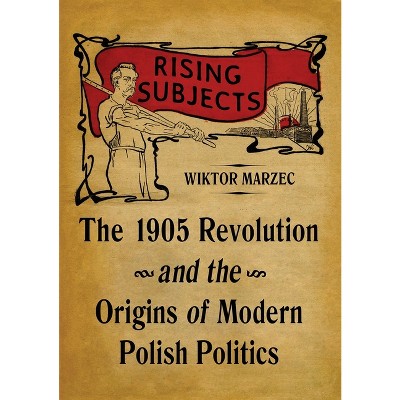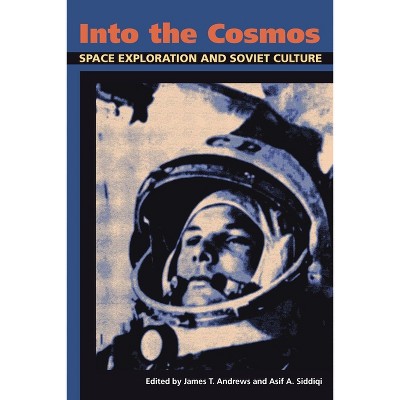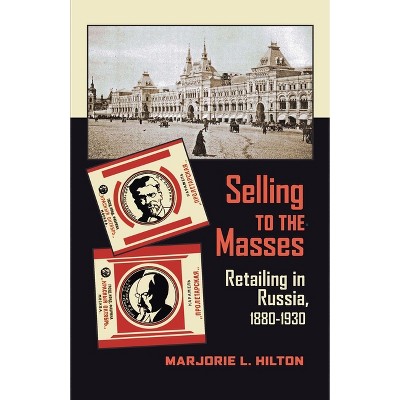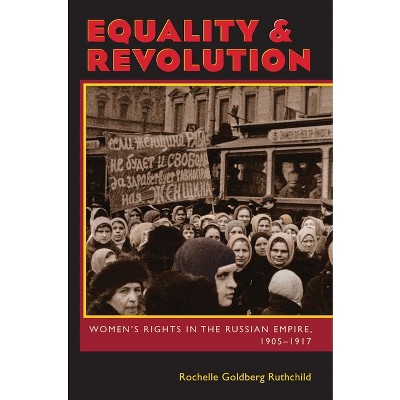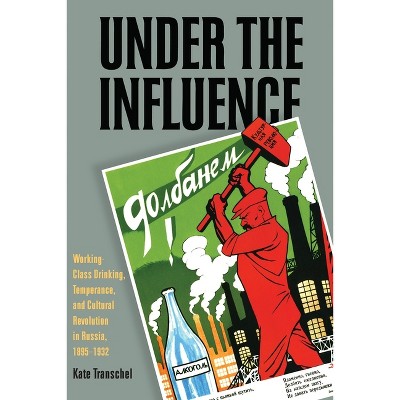The Rise and Fall of Belarusian Nationalism, 1906-1931 - (Russian and East European Studies) by Per Anders Rudling (Paperback)

$65.00 when purchased online
Target Online store #3991
About this item
Highlights
- Modern Belarusian nationalism emerged in the early twentieth century during a dramatic period that included a mass exodus, multiple occupations, seven years of warfare, and the partition of the Belarusian lands.
- About the Author: Per Anders Rudling is associate professor of history at Lund University, Sweden.
- 448 Pages
- History, Russia & the Former Soviet Union
- Series Name: Russian and East European Studies
Description
About the Book
Modern Belarusian nationalism emerged in the early twentieth century during a dramatic period that included a mass exodus, multiple occupations, seven years of warfare, and the partition of the Belarusian lands. In this original history, Per Anders Rudling traces the evolution of modern Belarusian nationalism from its origins in late imperial Russia to the early 1930s. Winner, 2015 Kulczycki Book Prize in Polish Studies from the Association for Slavic, East European, and Eurasian Studies (ASEEES)Book Synopsis
Modern Belarusian nationalism emerged in the early twentieth century during a dramatic period that included a mass exodus, multiple occupations, seven years of warfare, and the partition of the Belarusian lands. In this original history, Per Anders Rudling traces the evolution of modern Belarusian nationalism from its origins in late imperial Russia to the early 1930s.The revolution of 1905 opened a window of opportunity, and debates swirled around definitions of ethnic, racial, or cultural belonging. By March of 1918, a small group of nationalists had declared the formation of a Belarusian People's Republic (BNR), with territories based on ethnographic claims. Less than a year later, the Soviets claimed roughly the same area for a Belarusian Soviet Socialist Republic (BSSR). Belarusian statehood was declared no less than six times between 1918 and 1920. In 1921, the treaty of Riga officially divided the Belarusian lands between Poland and the Soviet Union. Polish authorities subjected Western Belarus to policies of assimilation, alienating much of the population. At the same time, the Soviet establishment of Belarusian-language cultural and educational institutions in Eastern Belarus stimulated national activism in Western Belarus. Sporadic partisan warfare against Polish authorities occurred until the mid-1920s, with Lithuanian and Soviet support. On both sides of the border, Belarusian activists engaged in a process of mythmaking and national mobilization. By 1926, Belarusian political activism had peaked, but then waned when coups d'états brought authoritarian rule to Poland and Lithuania. The year 1927 saw a crackdown on the Western Belarusian national movement, and in Eastern Belarus, Stalin's consolidation of power led to a brutal transformation of society and the uprooting of Belarusian national communists.
As a small group of elites, Belarusian nationalists had been dependent on German, Lithuanian, Polish, and Soviet sponsors since 1915. The geopolitical rivalry provided opportunities, but also liabilities. After 1926, maneuvering this complex and progressively hostile landscape became difficult. Support from Kaunas and Moscow for the Western Belarusian nationalists attracted the interest of the Polish authorities, and the increasingly autonomous republican institutions in Minsk became a concern for the central government in the Kremlin.
As Rudling shows, Belarus was a historic battleground that served as a political tool, borderland, and buffer zone between greater powers. Nationalism arrived late, was limited to a relatively small elite, and was suppressed in its early stages. The tumultuous process, however, established the idea of Belarusian statehood, left behind a modern foundation myth, and bequeathed the institutional framework of a proto-state, all of which resurfaced as building blocks for national consolidation when Belarus gained independence in 1991.
Review Quotes
A new, trend-setting study in the field of Belarusian history. . . Without doubt this detailed, well-written, and evocative study will not only become an important contribution to the field of modern Belarusian historiography, but also serve as an excellent and essential reference work and introduction to the historical study of East-Central Europe and the development of national movements there as a whole.-- "Soviet and Post-Soviet Review"
An impressive study. It deserves to be read by anyone interested in the modern trials and tribulations of nation building in eastern Europe and the former republics of the USSR.-- "Slavic Review"
Overall, Rudling's book is of significant importance. Belarus is one of the most under-researched countries in Eastern Europe. This scholarly work helps to understand how different and sometimes conflicting ideas of 'Belarusianness' were created and the influence they have had on shaping the identity of modern Belarus.-- "European History Quarterly"
Rudling's brilliant study both casts a much-needed light on a country largely marginalized from western scholarship and contributes an innovative transnational approach to the twentieth-century history of the wider East European region. . . .This sophisticated and multi-faceted study is a highly significant work. Extending well beyond the somewhat esoteric field of Belarusian Studies, it is simultaneously a theoretically informed exploration of the development of a non-paradigmatic nationalism, a case study in Soviet nationalities policy and repression, an analysis of Polish interwar government, and a truly regional and transnational history. Its real hero, arguably, is interwar Eastern Europe as a whole, whose cultural heterogeneity and complex political entanglement shine through on every page.-- "Slavic and East European Journal"
Rudling's study is important. His objective is to trace the roots of the Belarusian national movement in the interstices of the political rivalries between Poland, Lithuania, and the Soviet Union in the 1920s. He argues that both the successes and eventual demise of the original 'Belorussian nationalist movement' had far more to do with the actions of non-Belorussian actors; that Belarusian 'national awakeners' became pawns in larger power struggles between its neighbors. The framing of the history between Poland, Lithuania, and the USSR is an inspired stroke, and Rudling has organized the book very intelligently.-- "Kate Brown, University of Maryland, Baltimore County"
About the Author
Per Anders Rudling is associate professor of history at Lund University, Sweden.Dimensions (Overall): 8.9 Inches (H) x 6.0 Inches (W) x 1.1 Inches (D)
Weight: 1.35 Pounds
Suggested Age: 22 Years and Up
Number of Pages: 448
Genre: History
Sub-Genre: Russia & the Former Soviet Union
Series Title: Russian and East European Studies
Publisher: University of Pittsburgh Press
Format: Paperback
Author: Per Anders Rudling
Language: English
Street Date: December 22, 2014
TCIN: 1004080684
UPC: 9780822963080
Item Number (DPCI): 247-02-5593
Origin: Made in the USA or Imported
Shipping details
Estimated ship dimensions: 1.1 inches length x 6 inches width x 8.9 inches height
Estimated ship weight: 1.35 pounds
We regret that this item cannot be shipped to PO Boxes.
This item cannot be shipped to the following locations: American Samoa (see also separate entry under AS), Guam (see also separate entry under GU), Northern Mariana Islands, Puerto Rico (see also separate entry under PR), United States Minor Outlying Islands, Virgin Islands, U.S., APO/FPO
Return details
This item can be returned to any Target store or Target.com.
This item must be returned within 90 days of the date it was purchased in store, shipped, delivered by a Shipt shopper, or made ready for pickup.
See the return policy for complete information.







